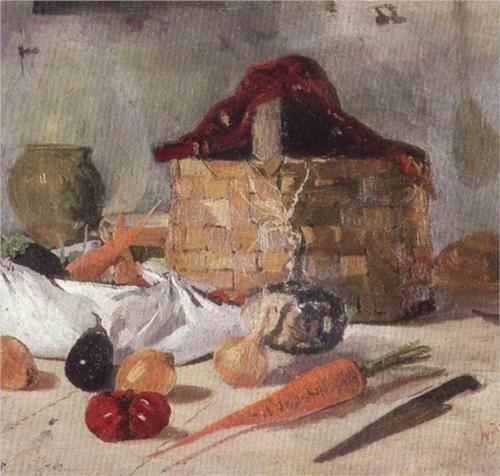Description
Ion Andreescu's Still Life painting is a masterpiece of Romanian art that has captivated art lovers for more than a century. This artwork is a perfect example of Andreescu's artistic style, characterized by his ability to capture the beauty of nature and everyday life.
The composition of the painting is impressive, with a carefully planned arrangement of objects on the table. The light that enters through the window illuminates the objects in a natural way, creating shadows and reflections that give depth and dimension to the painting.
The use of color in the painting is another highlight. Andreescu uses a palette of soft and warm colors that create a cozy and calm atmosphere. The earthy tones of the objects on the table are complemented by the green and blue tones of nature seen through the window.
The story behind the painting is also fascinating. It was painted in 1892, when Andreescu was in Paris studying at the Julian Academy. The painting was exhibited at the World's Fair in Paris in 1900, where it received a gold medal.
In addition to its beauty and technique, there are lesser-known aspects of the painting that make it even more interesting. For example, it is believed that the objects on the table represent the life of an artist: the palette and brushes symbolize creativity, the bottle of wine represents passion, and the bread and fruit represent everyday life.
In short, Ion Andreescu's Still Life painting is an impressive work of art that combines technical skill, beauty, and symbolic meaning. It is a jewel of Romanian art and a work that continues to captivate art lovers around the world.

